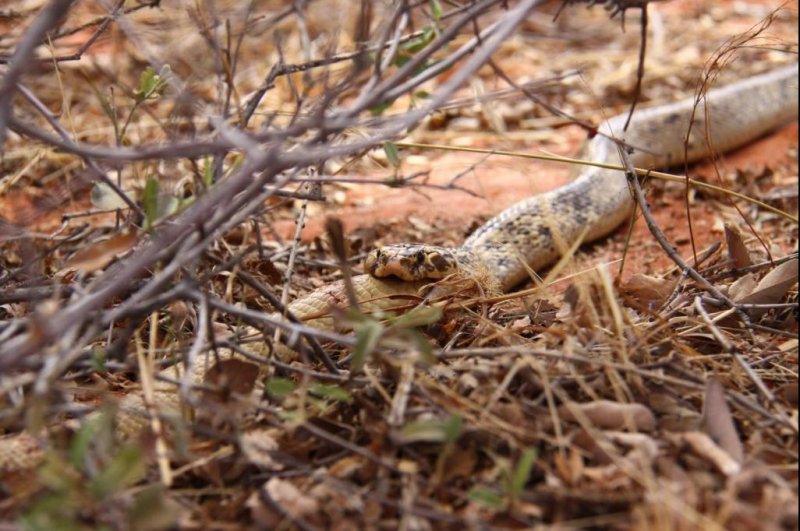A male cape cobra is pictured eating a smaller male of the same species in southern Africa. Photo by Bryan Maritz
Oct. 2 (UPI) -- Cobras have a taste for their fellow cobras. Until recently, scientists didn't know much about the feeding patterns of cobras. But new research suggests cannibalism is relatively common among cape cobras.
The cape cobra, Naja nivea, also known as the yellow cobra, is a highly venomous species native to southern Africa. Last spring, scientists came across a cape cobra eating a smaller specimen of the same species.
Because conspecific consumption has been rarely observed, scientists considered cannibalism among cape cobras to be aberrant behavior -- not normal.
But in the wake of the rare occurrence, scientists realized such a characterization is undermined by the reality that cobra feeding patterns are poorly understood. To gain a better understanding of what's "normal" and "aberrant," scientists surveyed the scientific literature for descriptions of conspecific consumption, or cannibalism, among six different cobra species.
Their analysis showed cobras frequently eat other snakes. Among the surveyed studies, snakes accounted for between 13 and 43 percent of all the animals eaten by cobras. The survey also showed all six cobra species have displayed conspecific consumption patterns.
Researchers found the scientific literature only describes instances of male-on-male conspecific feeding, suggesting the cobra cannibalism could have evolved from sexual competition. Fights between male cobras involve biting.
The dynamics of cannibalistic behavior could influence how species evolve. If, for example, environmental change triggers an increase in cannibalism, and cannibalism favors larger snakes, global warming could influence the species' size.
Scientists hope follow up studies will help biologists better understand how cannibalism can influence the rest of the food chain.
"This work highlights a renewed effort to meaningfully quantify several aspects of snake natural history, especially in poorly studied regions such as Africa," Bryan Maritz, a researcher at the University of the Western Cape, said in a news release. "[An] improved understanding of snake ecology and feeding in general will help to highlight the ecological functional roles that snakes are performing in African ecosystems."
Researchers shared the results of their investigation of cobra cannibalism in the journal Ecology.















